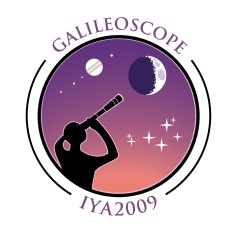In the Footsteps of Galileo: A Hands-on Workshop on Astronomy for Teachers in Grades 3 12
Saturday, April 24, 2010, 9:00am 4:30pm
Foothill College, Los Altos Hills, CA (see map at bottom of this post)
Presented by the Astronomical Society of the Pacific (ASP)
Workshop participants will explore:
- The realms of astronomy, and our changing perception of the universe
- Recent NASA moon missions (with information and activities about the Moon from the NASA Lunar Science Institute)
- An introduction to Galileo, his life, work and legacy
- Ideas about student reasoning about science and how to help students think like scientists
- Recreating Galileo¹s observations of the moons of Jupiter and the phases of the Moon
- The Galileoscope: a simple telescope with many uses
- Classroom-ready astronomy resources for teachers & students
- Where to find the best astronomy activities in print and on the web.
Presenters include:
- Andrew Fraknoi (Chair of Astronomy Department, Foothill College and the 2007 California Professor of the Year)
- Brad Bailey (Staff Scientist, NASA Lunar Science Institute)
- Brian Day (Education and Public Outreach, NASA Lunar Science Institute)
- Brian Kruse (Astronomical Society of the Pacific)
Registration:
$15 for ASP members and Project ASTRO partners; $25 for everyone else. For more information, and to register, please go to: http://www.astrosociety.org/education/gttp/workshop04-24-10.html
For their registration fees, workshop participants will receive:
 A Galileoscope (a high-quality, small telescope developed for the International Year of Astronomy 2009; now retailing for $30)
A Galileoscope (a high-quality, small telescope developed for the International Year of Astronomy 2009; now retailing for $30)- A packet of hands-on activities, background information and resource guides ready for immediate use in the classroom
- NASA lunar science resources
- Lunch provided
No background in astronomy is required; both new and veteran teachers will learn new ideas and techniques from the workshop. Registration is limited; reservations will be accepted in the order received.
The Astronomical Society of the Pacific, founded in 1889, is dedicated to sharing the excitement of our exploration of the universe with teachers, students, enthusiasts and the public. It is the largest and most active astronomy education organization in the world.
View NCNAAPT meeting locations in a larger map




 Stipends and/or free tuition at some sites: usually for in-state teachers. Ask your principal for Federal Title II-A funds. For information and more funding sources:
Stipends and/or free tuition at some sites: usually for in-state teachers. Ask your principal for Federal Title II-A funds. For information and more funding sources: